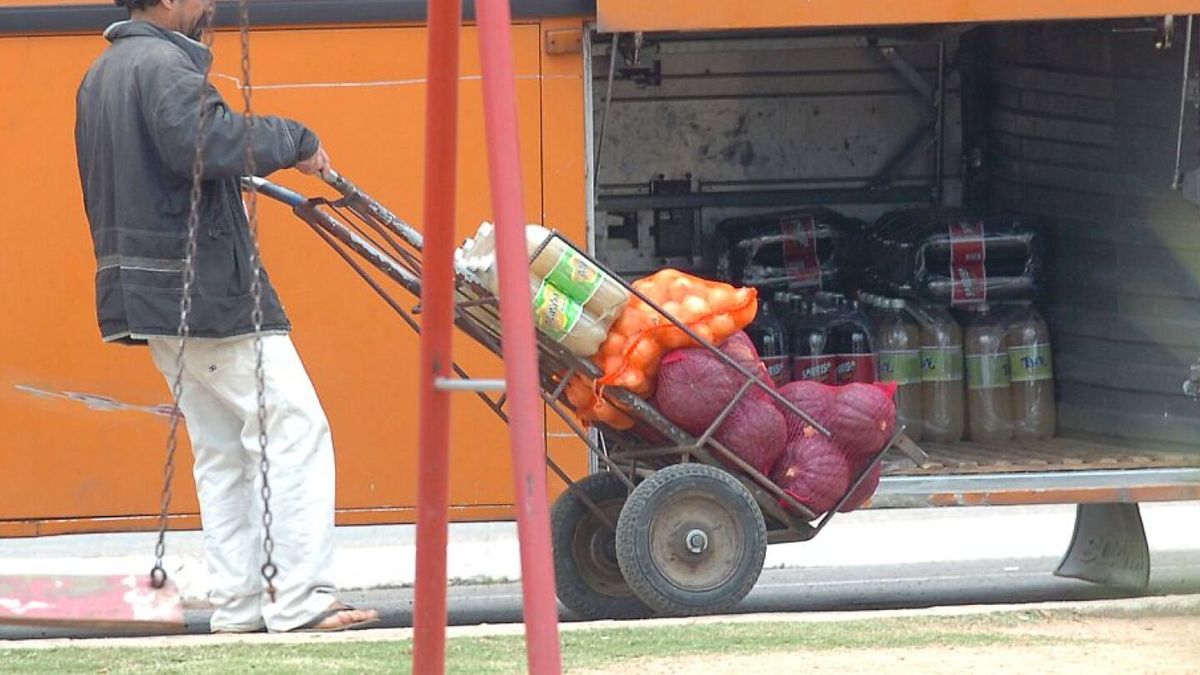The problem at the border Uruguay according to the exchange difference with Argentina continues to be the subject of debate among government authorities, pressured by increasingly worrying figures, such as the 144% price gap with the neighboring country and an unemployment rate of 14.7%, the highest in the country. In this context, the senators that make up the Treasury Commission discussed the issue in the presence of a delegation from the Commercial and Industrial Center of Salto.
The measures are not enough. That is the conclusion reached by all the sectors affected by the exchange difference on the coast, where sales fall but prices do not, which put them at a disadvantage compared to Argentine businesses. Although all initiatives are welcome to try to alleviate a structural situation that reached a critical point due to the exchange rate situation —in which the dollar rises in one country while it fails to rise in the local territory—, much more is needed . The problem is what to do, what is needed.
Some possible solutions were presented by the Salto Commercial and Industrial Center, but for the nationalist senator Sergio Botana, implementing those measures will be a waste of time. The critics, however, they were not addressed to the businessmen affected, but rather to the line followed by the government’s economic team.
For the white legislator, The worst of the situation on the border is yet to come.. According to him, it will be when the activity rates in that area of the country —which already has the highest unemployment figures— begin to suffer and when “there are no more people left to work, when people decide to emigrate.” “On the border with Brazil we have a picture of the future of the coast,” he said, referring to the people from that area who already cross the border to work.
Botana maintained that the only way to reverse the catastrophic scenario is by attacking the “central problem”: prices on the Uruguayan side. To do this, he recalled the bill presented in 2021 that proposed the tax break and the authorization to micro-import as two useful and necessary courses of action.
“As long as this problem is not attacked, smuggling is not going to be fought, even if one policeman is placed next to the other at the border,” he said. When dealing with fiscal issues, the project must have the prior endorsement of the Ministry of Economy and Finance (MEF), with which Botana was especially critical. “I think there is a quietism that is due to fear,” he said.
For the nationalist senator, the measures recently implemented by the government are not only not enough, but they will be “absolutely ineffective” to address the problem. “No business is going to sell more because energy costs less or the fixed charges at its business premises are lower,” he pointed out. “People are going to keep going to the other side.”
Criticism of the Ministry of Economy and a proposal for the government
Botana also assured that there is a “cultural problem” in the MEF, and that this organization “afraid of the border”. “They think they know how to move around the world, but they don’t know how to move around that territorial space. They are afraid of illegality and instability, two things that central governments push with their own rigidity,” he reflected.
In his vision, the natural should be the “flexibility” on the border to adapt to the changes, for which reason he raised a new proposal: that public purchases be concentrated in the areas of the country most affected by smugglingin order to alleviate the drop in activity and employment and “convince our economic authorities that there are twelve departments that are being devastated by the difference in prices. It is too much territory and too many people.”
Botana’s position was shared by the senator and leader of Open Town Hall, Guido Manini Ríos, who warned that “We cannot continue dealing with such a serious situation with economic orthodoxy”.
For the lobbyist, everything is due to a structural problem: in Uruguay “everything is very expensive”; and he questioned that the only price control measure has been that of the “ironed dollar”, which has resulted in the current situation that border trade is experiencing, which is barely “surviving”.
Source: Ambito




